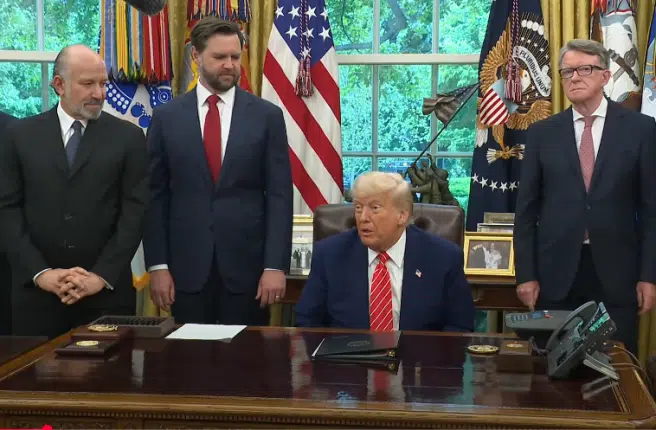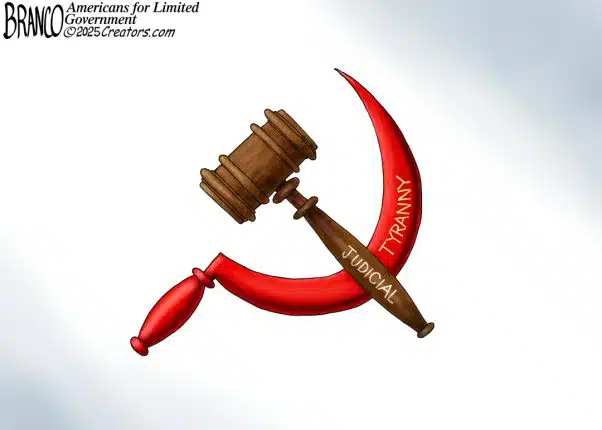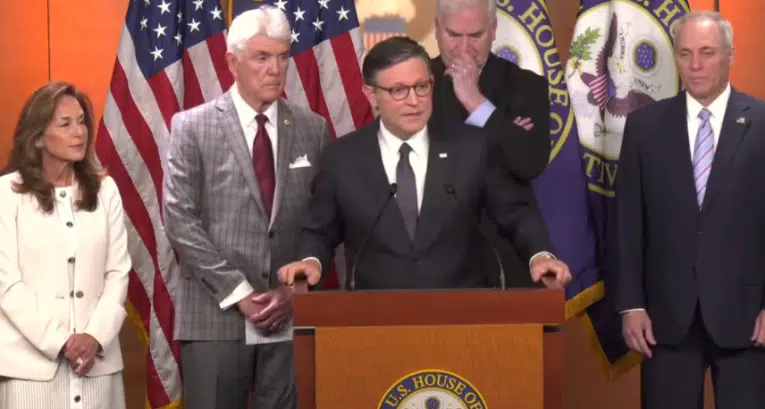By Rebekah Rast –
The he said/she said saga of the Obama Administration’s political appointments for Senate candidates Rep. Joe Sestak and Andrew Romanoff is confusing.
Americans for Limited Government (A LG) has put together a timeline reflecting the events and communications of each scandal up to the present day.
Though these cases may be far from over, here is some background on each candidate’s suggested political appointments.
Rep. Joe Sestak vs. Obama Administration
Rep. Joe Sestak (D-PA) beat current Sen. Arlen Specter (D-PA) in the recent Senate primary in Pennsylvania.
Specter switched his party allegiance to the Democrats in 2009 with the understanding that he would have the full backing of the Administration.
So, the Obama Administration’s intervention before the primary election to try and stop Sestak from running against Specter was not unexpected. What was unexpected by the White House was that Sestak would talk openly about the job offers he had received.
Things got out of hand about the deal the White House tried to make with Sestak, so the Administration issued a memo, hoping to clear up any controversies. That’s when the “he said/she said” comparisons begin.
White House: When the White House memo came out on May 28, 2010, Counsel Robert Bauer denied improper activities when Sestak was offered a position in a bid to get him to drop out of the race.
Bauer wrote that indeed efforts “were made in June and July of 2009 to determine whether Congressman Sestak would be interested in service on a presidential or other Senior Executive Branch Advisory Board, which would avoid a divisive Senate primary, allow him to retain his seat in the House, and provide him with an opportunity for additional service to the public in a high-level advisory capacity.”
Bauer also stressed that the job offered Sestak was unpaid and would allow him to retain his seat in the House.
The memo also confirmed that White House Chief of Staff Rahm Emanuel “enlisted the support of former President Clinton.”
Sestak: During the summer of 2009, Sestak confirmed he was offered a high-ranking administrative job if he were to drop out of the Senate race.
This latest version of the Sestak story is close to the White House statement.
“Last summer, I received a phone call from President Clinton. During the course of the conversation, he expressed concern over my prospects if I were to enter the Democratic primary for U.S. Senate and the value of having me stay in the House of Representatives because of my military background,” Sestak said. “He said that White House Chief of Staff Rahm Emanuel had spoken with him about my being on a Presidential Board while remaining in the House of Representatives. I said no.”
“I told President Clinton that my only consideration in getting into the Senate race or not was whether it was the right thing to do for Pennsylvania working families and not any offer,” he continued. “The former President said he knew I’d say that, and the conversation moved on to other subjects.”
Here’s a little more background:
Sestak: In an interview with Philadelphia TV newscaster Larry Kane in February 2010, Sestak confirmed that someone in the White House offered him a “high-ranking” job. When asked if it was the Navy Secretary position, Sestak replied with “no comment.”
White House: After Larry Kane played the tape for the White House it took them 15 hours to comment with a simple “You can say the White House says it’s not true.”
Sestak: On March 9, 2010, on an MSNBC interview Sestak does not refute he was offered the Navy Secretary position.
White House: When the White House finally issued the memo written by Bauer on May 28, 2010, Bauer writes that Sestak was not offered the job of Navy Secretary and deemed it “false” with the fact that Obama announced his plan to nominate Ray Mabus to that very position on March 26th, 2009.
On March 10th, 2010, Rep. Darrell Issa sent a letter to the White House asking for any detailed communications between Sestak and the White House. The letter went unanswered, as did Issa’s second letter.
Finally, on May 26th, 2010, all seven Republican members of the Senate Judiciary Committee sent a letter to Attorney General Eric Holder requesting a special prosecutor investigate Sestak’s claims about the White House job offer.
On May 27th, 2010, President Bill Clinton had lunch with Obama — to conveniently discuss the oil spill and to welcome the American World Cup soccer team.
Later that day, the White House called Sestak’s brother to let him know a response was being prepared about the allegations that the White House offered Sestak a job. On May 28th, 2010, the White House memo was released, which then was reaffirmed by Sestak’s statement.
Many inconsistencies surround the case of Sestak’s job offer from the White House. If you dig a little deeper you will find that Sestak isn’t even eligible to serve on a presidential board. In an article in the Washington Examiner, reporter Byron York writes, “Shortly after the release of the White House report, however, we learned that the rules of the intelligence board expressly forbid employees of the federal government from serving. As a member of Congress, Sestak is ineligible to be on the board. So maybe Bauer meant another board. But a closer look at the other presidential boards the White House might have mentioned shows that they, too, bar federal employees.”
It seems someone isn’t telling the full truth.
As facts are being worked out between Sestak and the White House, we learn the White House also dabbled in the senate race in Colorado.
Andrew Romanoff vs. Obama Administration
U.S. Senate candidate Andrew Romanoff of Colorado now claims that there might have been a job for him as well if he were to drop out of the race.
In the fall of 2009, not long after Romanoff decided to run for U.S. Senate against Colorado Sen. Michael Bennet, the White House made a call.
Jim Messina, Obama’s deputy chief of staff, suggested to Romanoff there might be a job for him in the administration or at another federal agency. In an email written to Romanoff from Messina, three jobs are highlighted, including jobs at the foreign aid organization, USAID.
At least one of these jobs presented to Romanoff was at a place he expressed interest in working for in early 2009.
Romanoff said no and formerly announced his bid to run for senate against Obama-endorsed Bennet.
Romanoff: In a statement about the events of last fall, Romanoff said, Messina “suggested three positions that might be available to me were I not pursuing the Senate race. He added that he could not guarantee my appointment to any of these positions. At no time was I promised a job, nor did I request Mr. Messina’s assistance in obtaining one.”
White House “Mr. Romanoff was recommended to the White House from Democrats in Colorado for a position in the administration. There were some initial conversations with him but no job was ever offered,” said White House deputy press secretary Bill Burton.
That was before Romanoff came forward with another statement.
Romanoff: Romanoff finally revealed that Messina had in fact offered to consider him for three different positions if he would drop his bid in the senate race.
White House: The next day, June 3rd, 2010, in a press conference Press Secretary Robert Gibbs said that yes, Messina did reach out to Romanoff to see if there was a way to keep him out of the senate race.
Both these cases bring up many questions in regards to ethics, legality and transparency of the Obama Administration. As they continue to declare nothing they did was illegal or wrong, then why not clear the air with the truth?
Until then, we wonder how many other candidates were offered similar benefits for stepping out of the competition. Someone has a lot of explaining to do.
Rebekah Rast is a contributing editor to ALG News Bureau.






